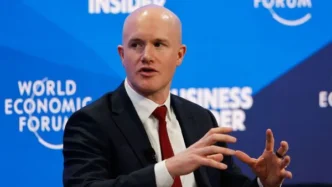Celsius founder Alex Mashinsky has been sentenced to 12 years in prison after pleading guilty to defrauding investors. Once hailed as a crypto pioneer, Mashinsky now joins a growing list of disgraced executives facing justice after the 2022 market collapse.
The 59-year-old appeared in a Manhattan courtroom where U.S. District Judge John Koeltl handed down the sentence. Mashinsky must also serve three years of supervised release and forfeit $48.4 million. Prosecutors had pushed for at least 20 years, arguing that his actions caused billions in losses.
Mashinsky admitted to inflating the value of Celsius’ native token, CEL. He also falsely promoted the company as a safe place to earn high returns on crypto. Behind the scenes, he used customer assets to manipulate prices and cover up losses.
Celsius, founded in 2017, promised up to 17% interest on crypto deposits. By 2021, it managed $25 billion in assets from over 1.7 million users. But the company’s financial health was not as strong as it appeared. In June 2022, Celsius froze withdrawals. Just a month later, it filed for bankruptcy, revealing a $1.19 billion hole in its books.
The Celsius founder also faces several civil lawsuits. U.S. agencies including the SEC, CFTC, FTC, and the New York Attorney General have filed claims accusing him of misleading investors and violating financial regulations.
Born in Ukraine and raised in Israel, Mashinsky moved to New York in the late ’80s. He launched Celsius with a bold message: “Unbank Yourself.” The company positioned itself as a crypto-based alternative to traditional banks.
At its peak, Celsius was a favorite among retail investors seeking passive income through digital assets. But as crypto prices fell, trust in Mashinsky’s promises quickly evaporated. The collapse left thousands of investors with locked funds and no way out.
Despite his legal team asking for leniency, citing remorse and family hardship, the court prioritized the scale of investor harm. In a statement after sentencing, U.S. Attorney Jay Clayton warned that innovation doesn’t excuse deception. “The case for digital assets remains strong,” he said, “but it must be rooted in truth.”
The Celsius founder now joins FTX’s Sam Bankman-Fried, who is serving 25 years, as one of the most heavily punished figures from the crypto crash era. Their convictions signal a new chapter for digital finance—one focused on accountability, transparency, and rebuilding trust.













